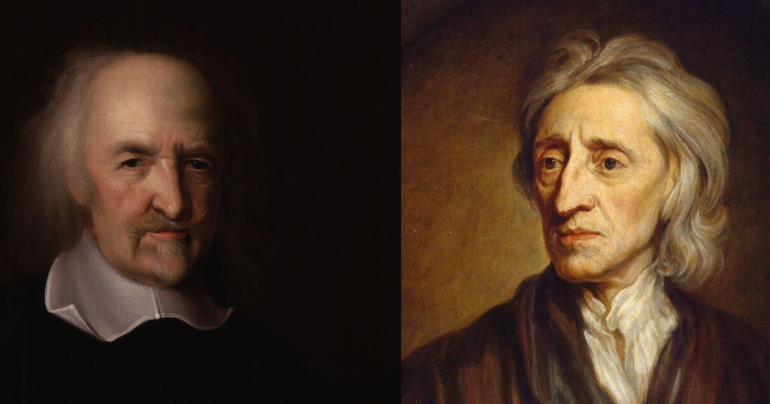If you want a polity that gives everyone equal rights under the law, liberal democracy is really the only thing there is.
At first glance this seems to be a true statement.
Liberal democracy as a theoretical political system in which the liberty of individual citizens is guaranteed through the practice of democratic voting with free and fair elections may indeed seem to be the most reasonable form of government in the history of the development of Western civilization, spanning ancient empires, religious theocracies, feudal monarchies, modern empires, and finally culminating in Western-style liberal democracies.
Once one accepts this thesis – that liberal democracy is the best way we have in the modern world to preserve equality under the law and therefore to have a morally upright society – it would become obvious that one should work toward establishing this form of government in all countries throughout the world wherever and whenever possible, in order to maximize personal freedoms and moral righteousness.
Certainly then, when discussing the Israeli-Palestinian conflict, it would seem that liberal democracy ought to be the only option available and that any solution proposed must incorporate Israelis, Palestinians, and all other populations into the liberal democratic framework in order to be morally acceptable in today’s world.
Because this reasoning has such profound implications for the entire world, let alone Israel, it’s worth analyzing some of the underlying assumptions upon which this thesis rests.
For starters, the word “polity” denotes a single and uniform political entity, which presupposes a single set of rules imposed equally on everyone in all areas, without regard to local community standards, religious preference, etc. It’s also worth noting, at least with respect to Israel, that the word “polity” is of Greek, rather than of Hebrew, Arab or Muslim origin.
Second, the word “equal” assumes that all individuals are and want to be equal and the same.
While in the United States this may be true – the ideal American construction may be that nobody would even be aware of racial or ethnic differences and that we would all therefore be truly equal – it is not necessarily the case that this must be so. One could easily entertain a scenario where different ethnic groups with different social or political needs might opt to be treated differently under the global “rules of the game” in order that they be allowed to abide by their own age-old norms without being forced to comply with an overarching “national” plan; even if such a plan were an attempt at a kind of “average” of all the various minority groups’ wishes.
For example, different groups might prefer to use different languages or calendars for business in their local communities, rather than being forced to use a national language or calendar that isn’t their own. They may even prefer different court systems within their own local domains if they happen to have their own unique legal traditions, rather than being forced to use a single national legal system in all cases.
Third, the word “rights” assumes an individualistic society oriented primarily toward the primacy of the individual over all else. This is in contradistinction to societies which place a higher value on community. Such societies maintain their cohesion through shared obligations to the collective rather than simply trying to avoid any undue encumbrances which community responsibility may place on the unwitting individual.
Clearly these two poles need not exist in isolation. One can value community and the rights of individuals both at the same time. But the thesis we are discussing (“a polity which gives everyone equal rights under the law”) places all of the emphasis solely on the individual.
It’s also instructive to notice the inherent bias of most people supporting the above thesis, who themselves hail from Western countries which coincidentally are currently using that exact form of government.
In fact, if we look at current nations which fit that description, we see that the bulk of them are made up of Western Europe, Scandinavia, America, and former British colonies such as Canada, Australia and New Zealand. It is interesting to note, then, that the logical extension of this thesis when applied globally is that a small cadre of [white] countries seem to have established for themselves the best form of government, and are therefore free to tell the rest of the [non-white] countries how to rule themselves.
Wikipedia lists 43 countries (not including Israel) as liberal democracies. 33 out of 43 of them, or 77%, are European or European-derived nations. There are a total of 195 countries in the world. 43 out of 195 is only 22%. In this age of heightened awareness of the effects of systemic racism, it is worth noting the fact that a minority of mostly European nations think that they have the moral authority to tell the other 152 (78%) of the countries how to rule themselves.
But let’s look at another angle. Most westerners who believe in liberal democracy don’t really believe they ought to have the moral authority to foist their form of government on other countries. Most such westerners are truly good people who just want what is best for everyone and are not looking to force their own way of doing things on others. Rather, they believe that most people in most countries in the world actually wish to live under liberal democracy, recognizing as they have, that it simply is the best form of government in existence.
Furthermore, many would go so far as to say that if some people somewhere were to say that they do not want to live under a Western-style liberal democracy, that they probably just don’t understand what it really means – and that once they learn what it means or experience its honest, wholesome goodness, then they would surely want it wholeheartedly.
Does that (admittedly hyperbolic) framing seem far-fetched to you? Let us recall then, the US invasions of both Afghanistan and Iraq. In both cases, Washington sought to take either a decidedly evil dictatorship or an equally decidedly evil theocracy and turn them into Western-style liberal democracies. Americans assumed that although the governments of these countries were indeed evil, the masses were good “normal” people who, despite being politically repressed, wanted nothing more than to live like we do, in a liberal democracy of their own.
The theory at the time was as follows: Because liberal democracies are stable and don’t attack one another, if we can remake the Middle East into a series of liberal democracies, then the terrorism emanating from those countries will disappear on its own. Iraq and Afghanistan, and possibly even a new state of Palestine, were to be the initial “seed” countries which would carry the rest with them into modernity and democratic equality.
There was quite a lot of head-scratching in the American political echelons once it became clear that it wasn’t going to be that simple. For example, once the Americans figured out that the Afghans actually had indigenous political structures of their own (can you imagine? the natives had somehow managed political structures of their own without the benefit of Hobbes and Locke?!) we decided to call a “Loya Jirga” – a grand meeting of the tribal elders – in order to convince them of the benefits of liberal democracy and obtain their “native” stamp of approval.
There still is really no satisfactory answer as to why both Afghanistan and Iraq have utterly failed to sustain the liberal democratic models that Washington gifted them, with no small amount of real American sweat and blood. Some assume that they simply “weren’t ready” for democracy – that one day they will be evolved enough to handle it, but that it just takes a long time and that they are unfortunately just not there yet. Other’s believe that although they want liberal Western democracy, they lack the institutions necessary to sustain it, and that over time they can be taught to successfully build the institutions that can allow for their dreams to eventually come true.
But either way, the assumption that the peoples of Afghanistan and Iraq obviously want to be like the West is rarely questioned, and the possibility that they might in fact have relatively advanced indigenous socio-political structures of their own is never even entertained.
Setting aside the sarcasm, it’s important to realize that the assumption that there is only a single method of governance that must be applied everywhere, and that this method is coincidently the same one that those making this assumption are themselves employing has a very imperialistic ring to it when viewed from outside the bounds of the somewhat isolated and remote American perch.
Other civilizations might have their own methodologies which may serve their needs even better than those of the West. It might even make perfect sense for foundational Western political thinkers such as John Locke, Thomas Hobbs, Jean Jacques Rousseau and Charles-Louis Montesquieu to have generated political theories that work well in their Western societies. But to then say that other societies cannot ever have had any thinkers or traditions that are worth anything, such that we must exclusively apply the philosophies of Western thinkers to the entire globe, simply makes no sense.
When Americans (and Europeans) opine that “liberal democracy is really the only thing there is” and then go about the business of “helping” the rest of the world, and Israelis and Palestinians in particular, to be like good little Americas, the strategy is doomed to fail, as history has already proven time and again.
In the case of Israelis and Palestinians, the people best equipped to deal with issues related to living together on the same small piece of land under a governmental structure that accommodates both peoples future desires and takes into account both peoples historical socio-political systems (which unbeknownst to most Westerners, already actually exist at a fairly advanced level), are, not surprisingly, the Israelis and the Palestinians themselves.





